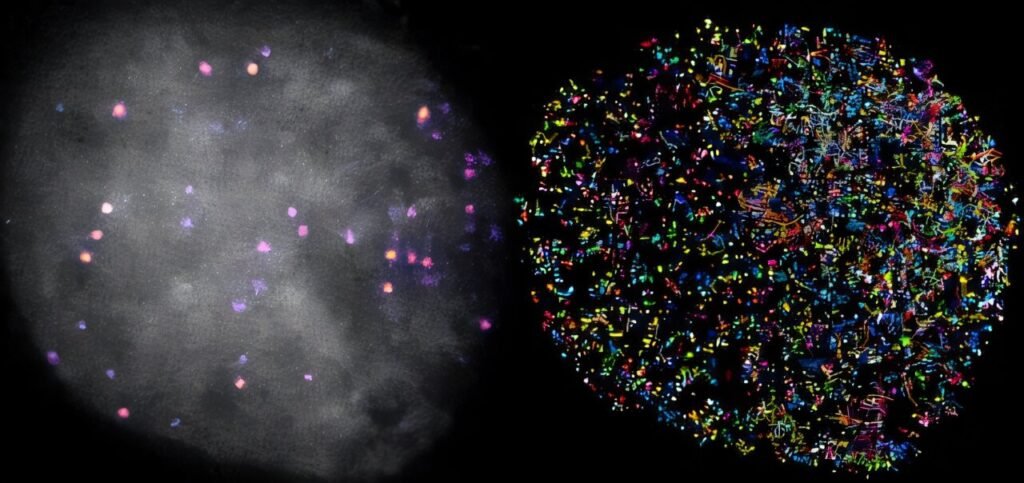Scientists in Melbourne are making groundbreaking discoveries about the Hippo pathway at the molecular level, shedding light on how this pathway functions and its potential as a treatment for mesothelioma, a deadly form of cancer.
The Hippo pathway, which dates back over a billion years and is consistent across various species, including humans, plays a crucial role in regulating tissue growth, wound healing, cell proliferation, and cell death. However, when the Hippo pathway malfunctions, it can contribute to the development and progression of cancer.
Researchers have recently captured microscopy images showing the activity of DNA-binding proteins known as TEADs and YAP, which are essential components of the Hippo pathway. By using innovative microscopy techniques, they were able to observe these proteins moving within the nucleus of human cells and binding to DNA in real-time.
One key finding from their study is that the Hippo pathway controls gene expression by regulating the timing of TEADs and YAP binding to DNA. This knowledge is crucial for understanding how the Hippo pathway influences the development of diseases like mesothelioma and identifying potential targets for new cancer treatments.
Two new drugs targeting the Hippo pathway are currently undergoing clinical trials for mesothelioma, a challenging cancer often linked to asbestos exposure. These drugs aim to inhibit the activity of TEAD1, a protein known to contribute to mesothelioma development.
Additionally, the study revealed insights into how a fusion protein called YAP-TFE3, which is associated with a rare cancer called epithelioid hemangioendothelioma, interacts with DNA. Understanding the behavior of mutated proteins like YAP-TFE3 could lead to new therapeutic strategies for treating these hard-to-treat cancers.
The research, led by Professor Kieran Harvey and Dr. Benjamin Kroeger from Peter MacCallum Cancer Centre and Monash University, has been published in the journal Science Advances. Their findings offer hope for developing more effective treatments for mesothelioma and other challenging cancers by targeting the Hippo pathway.
By delving into the molecular mechanisms of the Hippo pathway, scientists are paving the way for innovative cancer therapies that could revolutionize treatment options for patients in the future. This study represents a significant step forward in the quest to unravel the mysteries of cancer biology and develop targeted therapies based on a deeper understanding of cellular signaling pathways.


